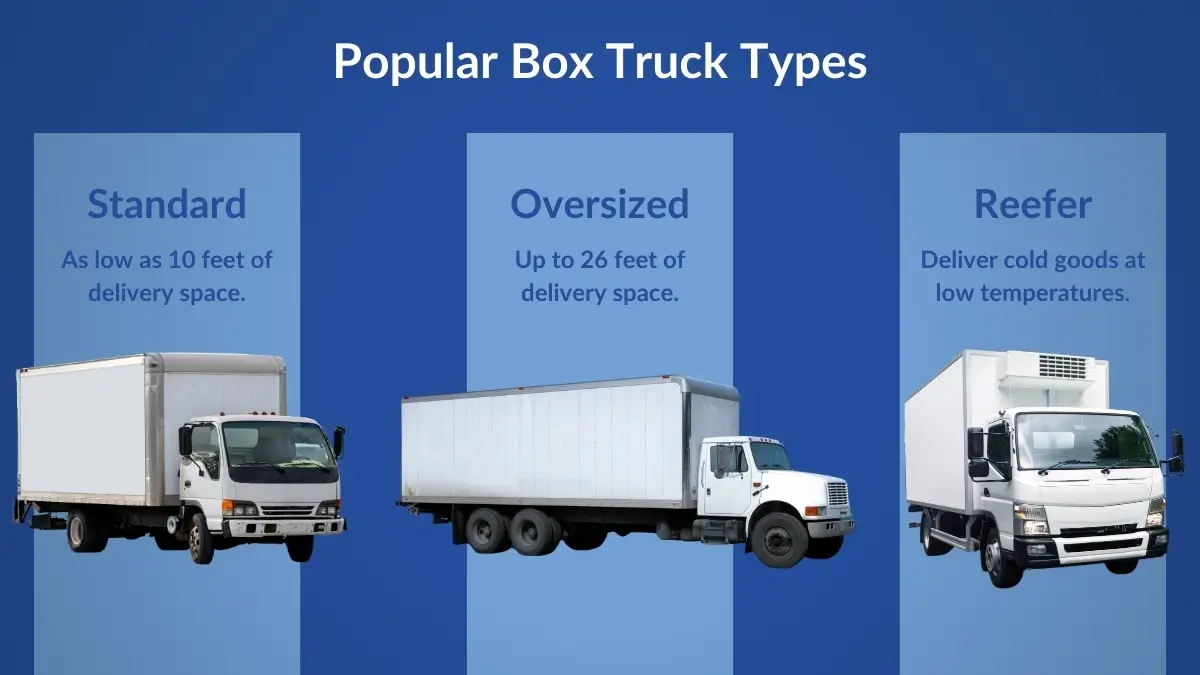Negotiating for better pay in the box truck industry can feel like an uphill battle, especially when market rates fluctuate and competition is fierce. However, understanding the nuances of box truck load rates and mastering negotiation techniques can significantly boost your earnings. Whether you are an owner-operator, a driver, or a fleet manager, this guide will equip you with actionable tips to get the best pay for your box truck loads.
Understanding Box Truck Load Rates
Before diving into negotiation strategies, it’s essential to understand the factors that influence box truck load rates. These rates vary depending on multiple variables:
Distance and Mileage
- Short-Haul Loads: Typically pay less per mile but may include more frequent jobs.
- Long-Haul Loads: Offer higher per-mile rates, especially for cross-state or cross-country deliveries.
Type of Cargo
- Specialized Loads: Items like refrigerated goods, fragile items, or hazardous materials often command higher pay.
- General Freight: Pays less but is more readily available.
Market Demand and Supply
- Seasonal Demand: During peak seasons (e.g., holiday shopping), rates can increase significantly.
- Market Saturation: More trucks competing for the same loads can drive prices down.
Load Size and Weight
- Heavier or oversized loads may require more resources, leading to higher rates.
The Importance of Negotiation in the Box Truck Industry
Negotiation is not just about securing better pay; it’s about establishing long-term relationships with shippers and brokers, maintaining fair compensation, and ensuring the sustainability of your business
Preparation: The Key to Successful Negotiation
Know Your Operating Costs
Understanding your expenses—fuel, maintenance, insurance, and driver wages—is crucial. Knowing your break-even point allows you to negotiate rates that ensure profitability.
Research Market Rates
Stay updated on current box truck load rates in your area and industry. Use online freight platforms and rate calculators to benchmark competitive pricing.
Build Relationships
Cultivate strong relationships with brokers and shippers. A reliable reputation can give you leverage in rate discussions.
Strategies to Negotiate for Better Box Truck Load Rates
Highlight Your Value
When negotiating, emphasize your strengths:
- On-Time Delivery: Proven track record of reliability.
- Specialized Equipment: Such as refrigeration units or lift gates.
- Experience: Years in the industry and expertise with specific types of loads.
Leverage Load Boards
Load boards are an excellent resource to find opportunities. When using these platforms:
- Compare multiple offers before committing.
- Use higher-paying jobs as leverage in negotiations with other brokers.
Be Flexible
Flexibility in routes and schedules can lead to better pay. For example:
- Accepting backhauls to minimize deadhead miles.
- Willingness to take urgent or last-minute jobs.
Bundle Services
If possible, offer additional services such as packing, loading, or unloading. Shippers may pay a premium for added convenience.
Ask the Right Questions
- What’s the Load Deadline?: Tight deadlines often come with higher pay.
- Are There Accessorial Charges?: Inquire about extra pay for loading, unloading, or detention time.
Negotiate Beyond the Rate
If a shipper or broker is unwilling to budge on pay, negotiate for other benefits:
- Faster Payment Terms: Instead of waiting 30-60 days, request payment within a week.
- Fuel Surcharges: To offset rising fuel costs.
Common Pitfalls to Avoid During Negotiation
Underestimating Costs
Failing to calculate accurate operating expenses can result in accepting loads that barely cover costs.
Overcommitting
Accepting too many jobs can lead to delays, customer dissatisfaction, and potential penalties.
Ignoring Market Trends
Not keeping track of seasonal or regional rate changes can put you at a disadvantage.
Tools and Resources for Better Pay Negotiations
Freight Rate Calculators
These tools provide industry-standard rates for various load types and distances.
Load Boards
Platforms like DAT, Truckstop.com, and uShip allow you to compare and bid on jobs.
Industry Associations
Joining trucking associations provides access to rate data, networking opportunities, and negotiation tips.
Case Study: Successful Box Truck Rate Negotiation
Scenario: An owner-operator in Texas was offered $1.50 per mile for a refrigerated load, far below the state average of $2.25 per mile.
Steps Taken:
- Researched Local Rates: Verified that $2.25 was standard for similar loads.
- Emphasized Value: Highlighted experience with perishable goods and on-time delivery.
- Negotiated for Add-Ons: Secured an additional fuel surcharge and quick payment terms.
Outcome: The operator successfully negotiated a rate of $2.30 per mile, significantly boosting profitability.
How to Build Long-Term Success in Negotiation
Deliver Consistently
Brokers and shippers are more likely to agree to higher rates when they trust your service.
Network Regularly
Attend industry events, join forums, and connect with other drivers to learn about new opportunities.
Stay Adaptable
Economic conditions and industry demands change; staying flexible ensures you remain competitive.
Future Trends in Box Truck Load Rates
Increased Automation
Freight matching algorithms and AI-driven tools are expected to streamline negotiations, offering more transparency in rates.
Sustainability Premiums
As businesses prioritize sustainability, box truck operators with eco-friendly vehicles or practices may command higher rates.
Rising Demand for Specialty Loads
Industries requiring temperature-controlled or fragile goods transportation will likely drive higher rates.
Conclusion
Negotiating box truck load rates is an essential skill for maximizing earnings in a competitive industry. By understanding the factors that influence rates, preparing effectively, and leveraging strategic negotiation techniques, you can secure better pay for your services.
Whether you’re a seasoned operator or new to the field, investing time in building relationships, staying informed about market trends, and using available resources will set you up for long-term success. Remember, every negotiation is an opportunity to demonstrate your value and strengthen your business.
